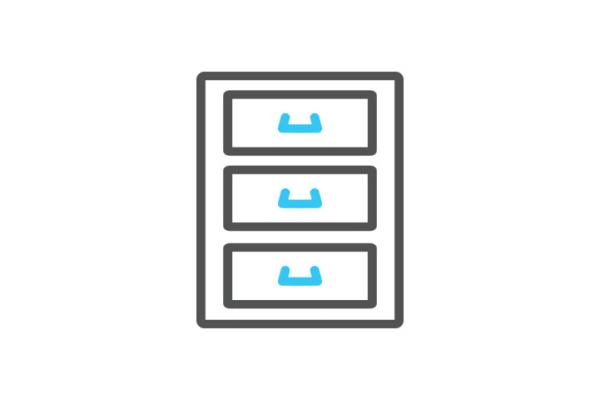Cross-border health threats are an international challenge by definition and, in response, HERA works together with partners across the world towards building a common, integrated, and equitable framework for global health security.
HERA’s international cooperation agenda aims to build strong relations with bilateral and multilateral partners to ensure the availability and accessibility of medical countermeasures globally, bolstering preparedness and resilience against potential health crises in the future.
International cooperation is a crucial part of what we do, as it contributes to:
- facilitating the sharing of resources, knowledge, and expertise across national borders;
- strengthening global health security and enabling a comprehensive, coordinated response to health emergencies;
- fostering solidarity between states, citizens, and health systems, improving societal resilience in times of crisis.
Improving global health security
Through a firm commitment to international partnerships in the EU as well as globally, HERA contributes to bolstering coordination and reinforcing the global health security architecture across multiple key fronts.
Working in close collaboration with strategic global partners, HERA strives to increase equitable access to safe, effective, and affordable medical countermeasures and ensure a more even distribution of preparedness and response capacities. To this effect, we carry out actions to:
- address international supply chain bottlenecks and expand global production capacity;
- support low- and middle-income countries in building expertise and develop manufacturing and distribution capacities;
- reinforce global surveillance and intelligence gathering;
- facilitate international cooperation and support for access to and availability of medical countermeasures in case of a health emergency;
- bolster access to EU-funded medical countermeasures.
To support these efforts, an overall budget of EUR 13 million from EU4Health has been provisionally set aside as possible contribution to global, regional or national initiatives in the field of pandemic preparedness. This includes late-stage clinical trials of vaccines and/or treatments against priority health threats (e.g. Ebola), and more specifically to support the enhancement of sequencing capacities and data collection on emerging pathogens in Africa, in collaboration with the African Centre for Disease Control and the WHO pandemic Hub.
International partnerships
HERA cooperates closely with a variety of competent authorities, scientific bodies, and international organisations contributing to strengthening the global health security architecture. These include:
- National and international authorities and agencies
- Health and other competent authorities of third countries
- International organisations
- Non-governmental organisations
- Multilateral fora
Multilateral relations
When it comes to multilateral engagement, HERA is a dynamic participant in key global health security initiatives and represents, together with other services, the voice of the Commission on matters of preparedness and response on the global stage.
It supports the Commission’s efforts as Union negotiator in the negotiations on a Pandemic agreement, in particular with regard to medical countermeasures. In addition, HERA supports the Commission’s ambition to increase funding for pandemic preparedness response globally, in particular through the new Pandemic Fund.
Building on its existing support to the international roll-out of COVID-19 vaccines in a Team Europe approach, HERA continues to support Low- and Middle-Income Countries (LMIC) in building their capacity and expertise in preparedness, response, and local manufacturing. This work is carried out in association with two key partners, the World Health Organisation (WHO), and the African Union.
Bolstering collaboration with the WHO
HERA collaborates with the WHO Hub for Pandemic and Epidemic Intelligence and the WHO Regional Office for Africa (AFRO) to support the intelligence gathering and threat assessment functions of HERA, specifically addressing the threat of emerging infections on the African continent. It also supports initiatives aimed at increasing the transparency of critical supply chains and the scaling-up of laboratory capacities for clinical and environmental surveillance.
HERA also supports the SECURE initiative to expand sustainable access to essential antibiotics, while also monitoring an activity launched in 2022 on priority signalling regarding resistant bacteria and fungi, pipeline analysis for antibacterial and antifungal agents, diagnostics, and vaccines against resistant pathogens.
Cooperating with African countries
HERA serves as the link between the European Commission and African national and regional health authorities. In collaboration with the Africa Centres for Disease Control (CDC), it aims to boost the development of medical countermeasures for infectious diseases affecting Africa, including those with epidemic or pandemic potential. HERA also supports the enhancement of sequencing-based surveillance capacities, essential in strengthening public health abilities for outbreak detection and response in Africa. To this end, HERA is contributing EUR 6 million in a Joint Africa CDC – European Commission Initiative on Genomic Sequencing, supporting grant agreements for projects to be implemented in partnership with the African Society for Laboratory Medicine and the Africa Public Health Foundation. The support to Africa CDC’s ‘Pathogen Genomics Initiative 2.0’ is part of the Team Europe Initiative on Health Security using a One Health approach.
HERA is also supporting the Team Europe Initiative (TEI) on Manufacturing and Access to Vaccines, Medicines, and Health (MAV+) and the Global Health European and Developing Countries Clinical Trials Partnership (EDCTP3).
Bilateral relations
HERA engages regularly with international health emergency authorities to fulfil its mandate on medical countermeasures and contributes to the implementation of the EU Global Health Strategy in close cooperation with other Commission services.
HERA has ongoing active collaboration with the United States, Japan, Korea, Canada, Australia, New Zealand and India. With some key partners, such as the U.S. Department of Health & Human services, the Ministry of Health and Welfare of the Republic of Korea, and the Japan Agency for Medical Research and Development, the cooperation has been formalised through administrative arrangements which improve cooperation, preparedness and response to health emergency situations. Additional formal cooperation arrangements are being developed with other key partners.
HERA also collaborates closely with EU candidate countries, potential candidates, and neighbouring countries, with the objective of ensuring the security of supply of medicines. For this purpose, it liaises with partners regularly to ensure diversification of supply, regulatory convergence and a level playing field, as well as to support their local production capacity.




